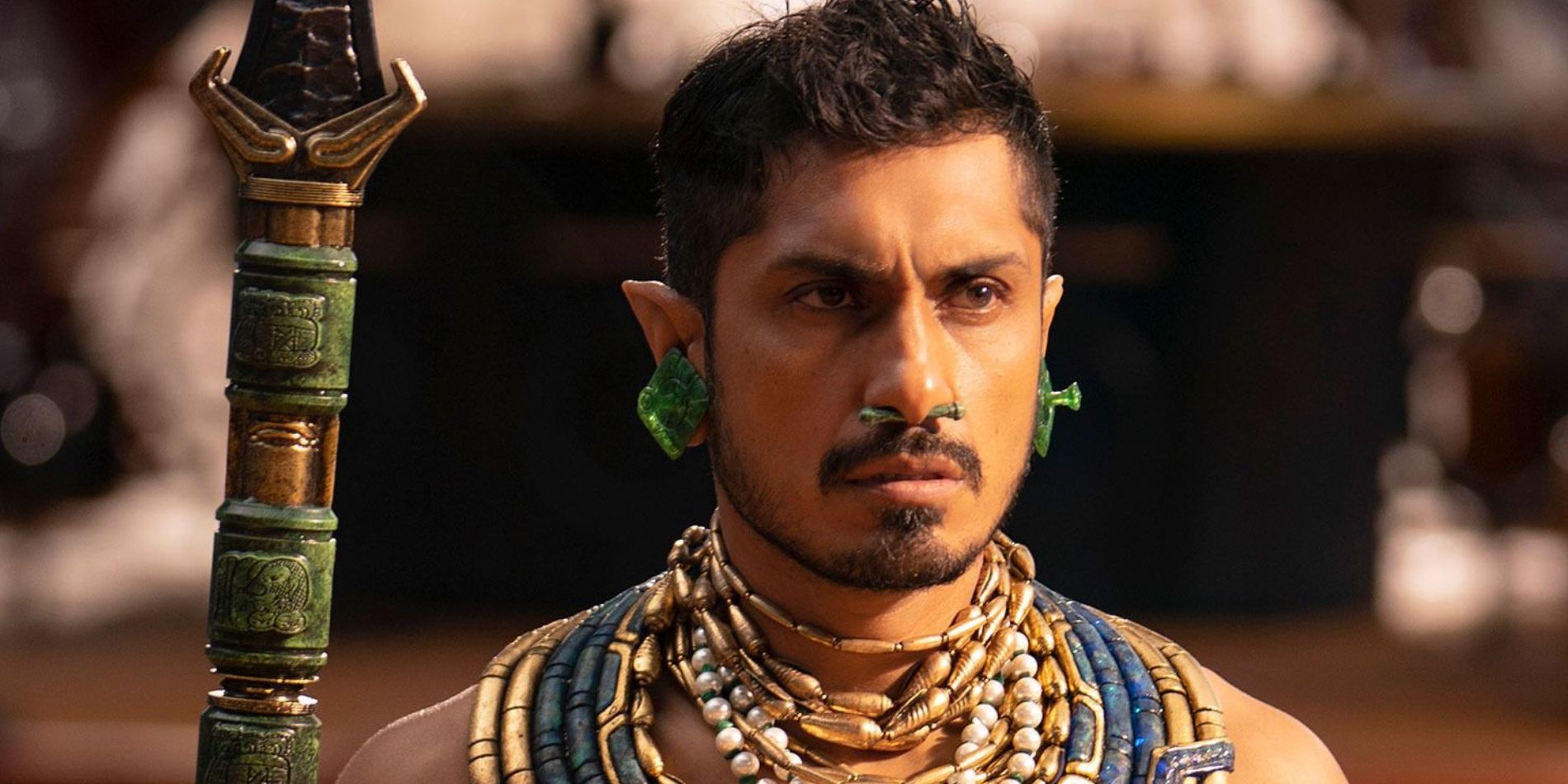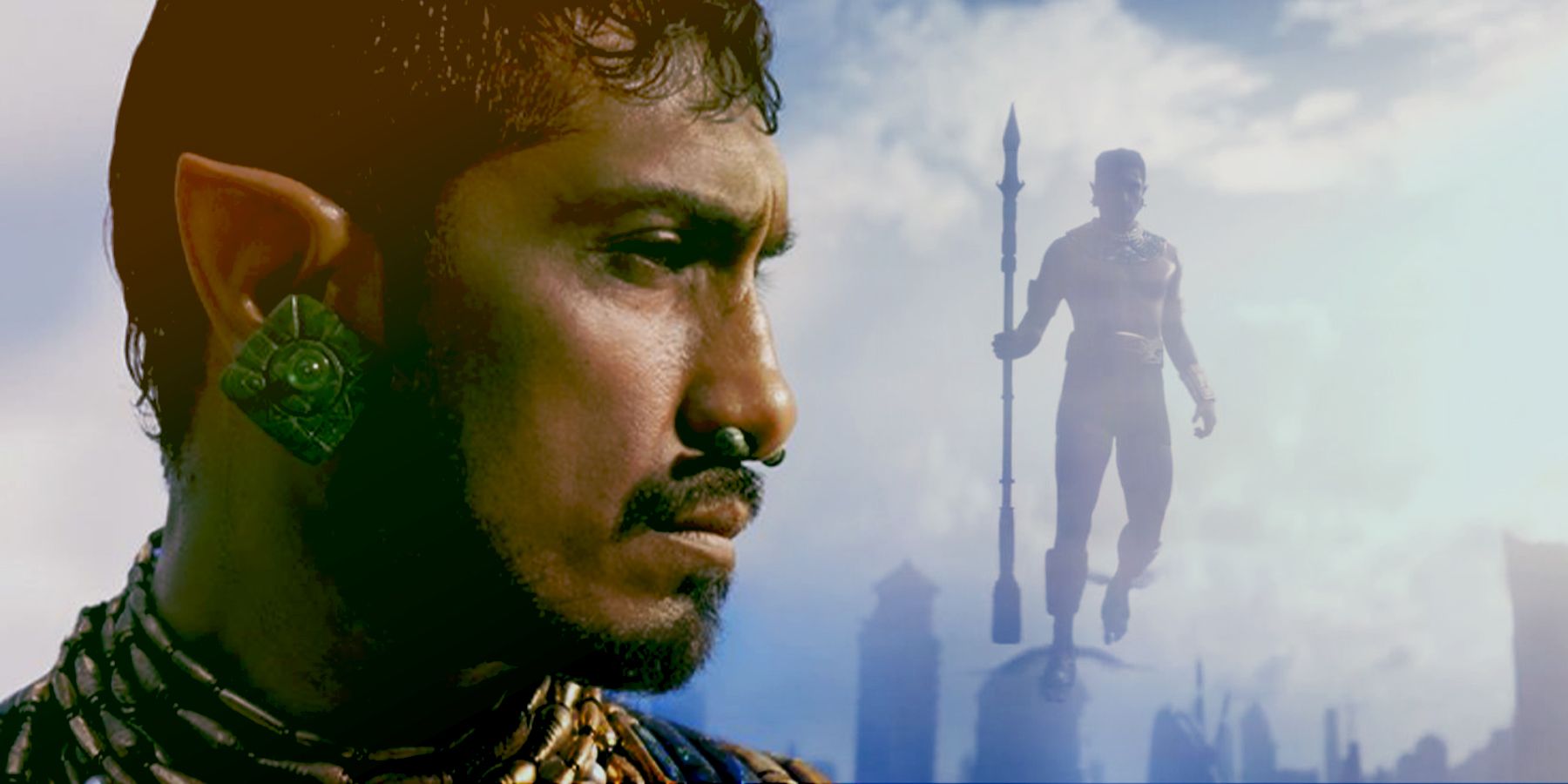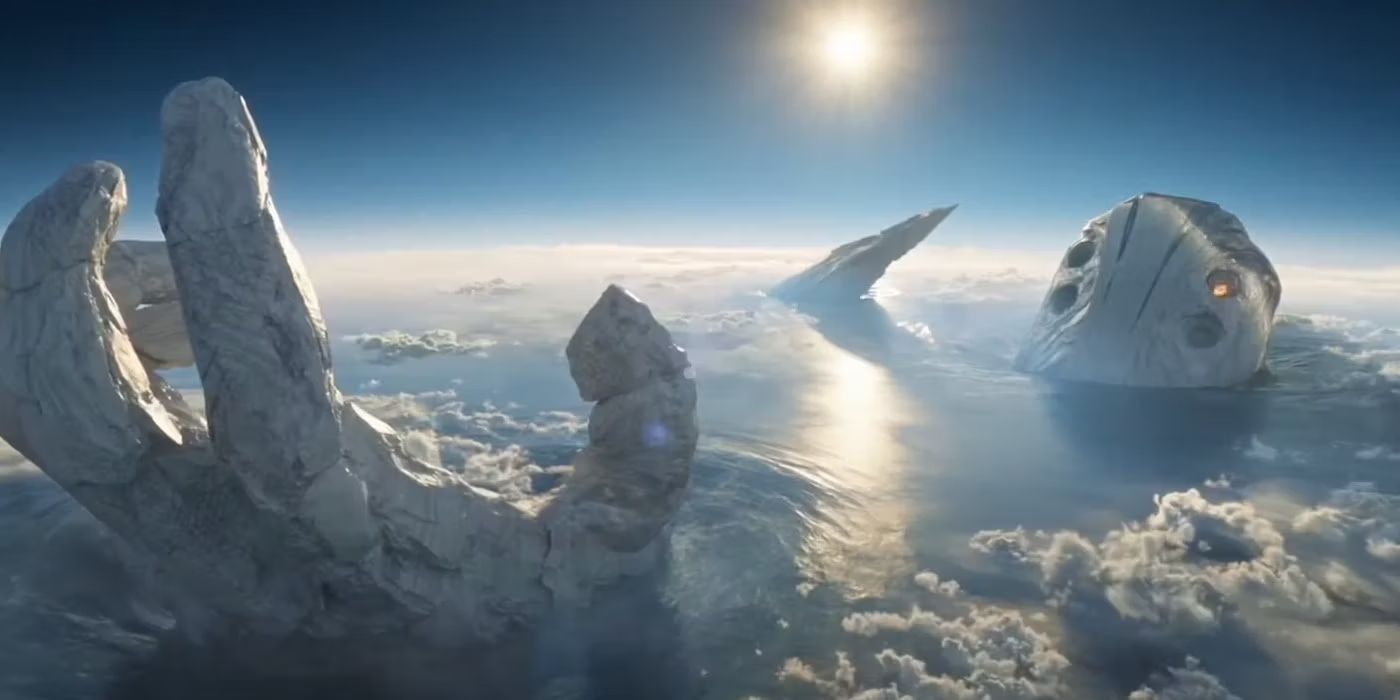The following contains spoilers for Black Panther: Wakanda Forever, now in theaters.
When fans learned Namor's Talokan kingdom would be the antagonist in Black Panther: Wakanda Forever, many were interested to discover where they were all this time. Apart from some subtle Easter eggs in the Marvel Cinematic Universe, there weren't really any official details into what the Sub-Mariner and his people were truly up to. Well, Wakanda Forever explains that it's all because Namor purposely kept his people hidden for centuries, forming a society off the grid.
Namor doesn't think the surface is friendly, having experienced nothing but war and bloodshed from his brief incursion there. That is why he's angry Wakanda exposed the world to vibranium, as it means foreign parties, like Countess Val and the CIA in America, will come to mine their resources. However, while from a cultural perspective, it's understandable Namor would want to stay secluded, this doesn't add up given what's transpired in the MCU thus far.
Namor's Kingdom Needs External Connections After the Snap
While Black Panther 2 shapes Namor's kingdom as isolated, it somehow discovers Riri Williams helped make the vibranium-seeker, so he wants Wakanda to kidnap her for him. However, the rest of the movie doesn't indicate they have spies on land, which would have made sense because Atlantis used surface-dwellers in the comics. In addition, one has to wonder why Namor would remain disconnected when one major event happened -- the Snap.
Wakanda Forever never addresses if the Talokan weren't affected or if some survival or exclusion rule was set up in the lore, per the Eternals. Thus, since Thanos affected all reality, it stands to reason the underwater kingdom should have taken a hit. And a liege such as Namor should have had agents loyal to him, maybe a cult amid humanity or some aquatic allies, wanting to preserve this precious Mesoamerican empire undersea. After all, by hiding away, Namor's home would remain uneducated and vulnerable, coming off as sitting ducks until the next Snap or other unpredictable, apocalyptic event occurred. Simply put, he's making his people victims when, according to the MCU canon, they'd have been resurrected after Avengers: Endgame. That ought to have piqued his interest, so he could figure out how to ensure it didn't repeat.
Namor's Talokanil Already Dealt With a Major Aquatic Incursion
What further makes Namor's reclusive nature questionable is there's already been a major debacle in the sea. While his base is around the Atlantic Ocean, the neighboring Indian Ocean houses the shell of Tiamut from Eternals. That Celestial rose and was supposed to destroy the planet, so if Namor's people can be disturbed by the CIA's ocean-mining, they should definitely be taking note of something so large reverberating throughout the ocean bed and Earth's crust, as it could endanger their realm.
Admittedly, this Namor's a bit different from DC's cinematic Aquaman, the latter of which is in tune with everything under the sea. But the Talokan has tech and uses creatures such as whales as transport. By comic logic and how Namor claims the sea as his domain, using waterways to sneak into Wakanda, it just doesn't add up why he'd ignore Tiamut's giant husk, especially since Wakanda Forever occurs after Eternals. It feels like an oversight by the studio, but external influences and dangers were knocking on the Talokan's doorsteps before this film. Ultimately, it means Namor should have wanted some form of assimilation and integration, even with a secretive Wakanda, to be proactive against future threats.
To see Namor's underwater kingdom, Black Panther: Wakanda Forever is now playing in theaters.



